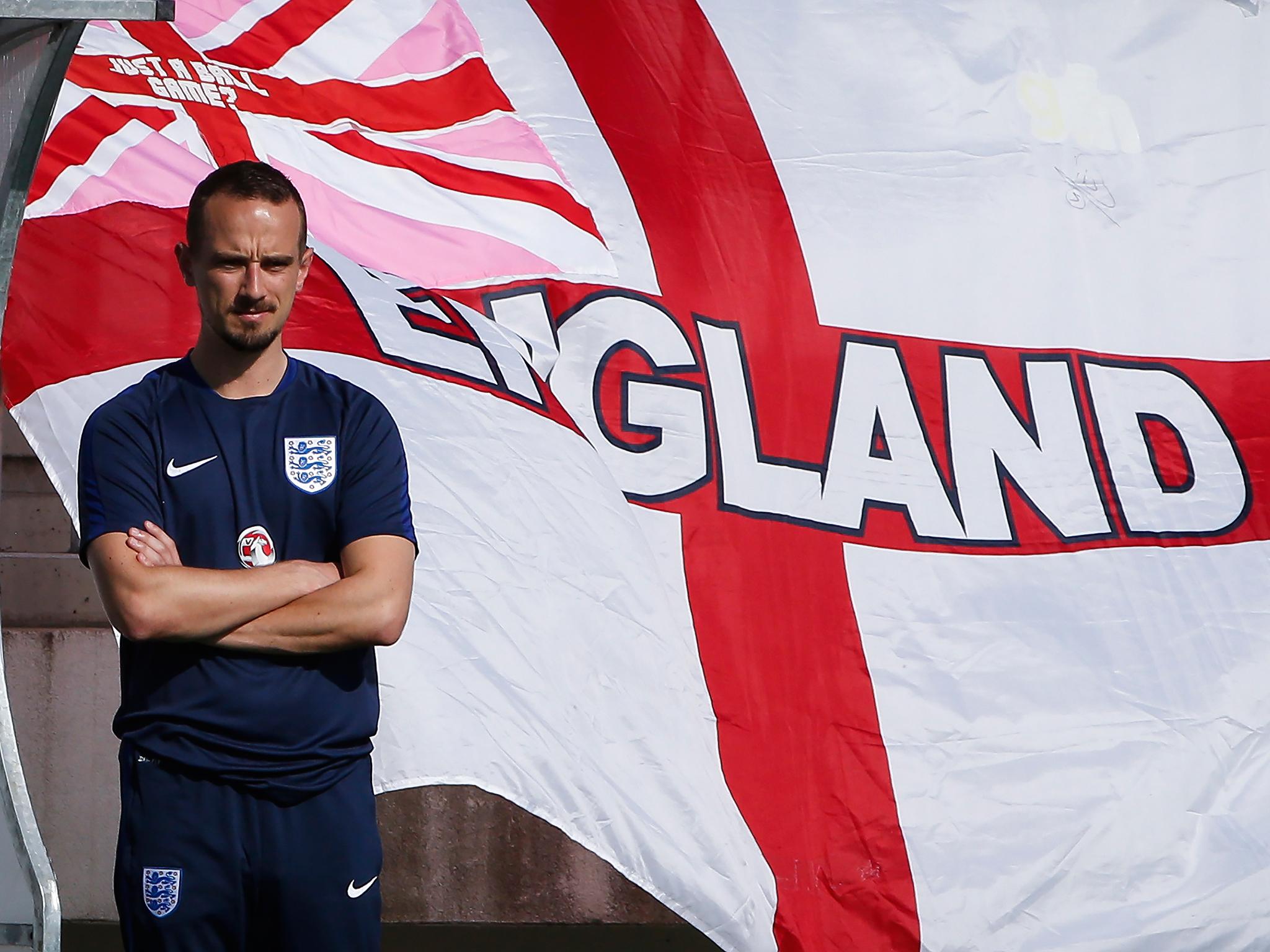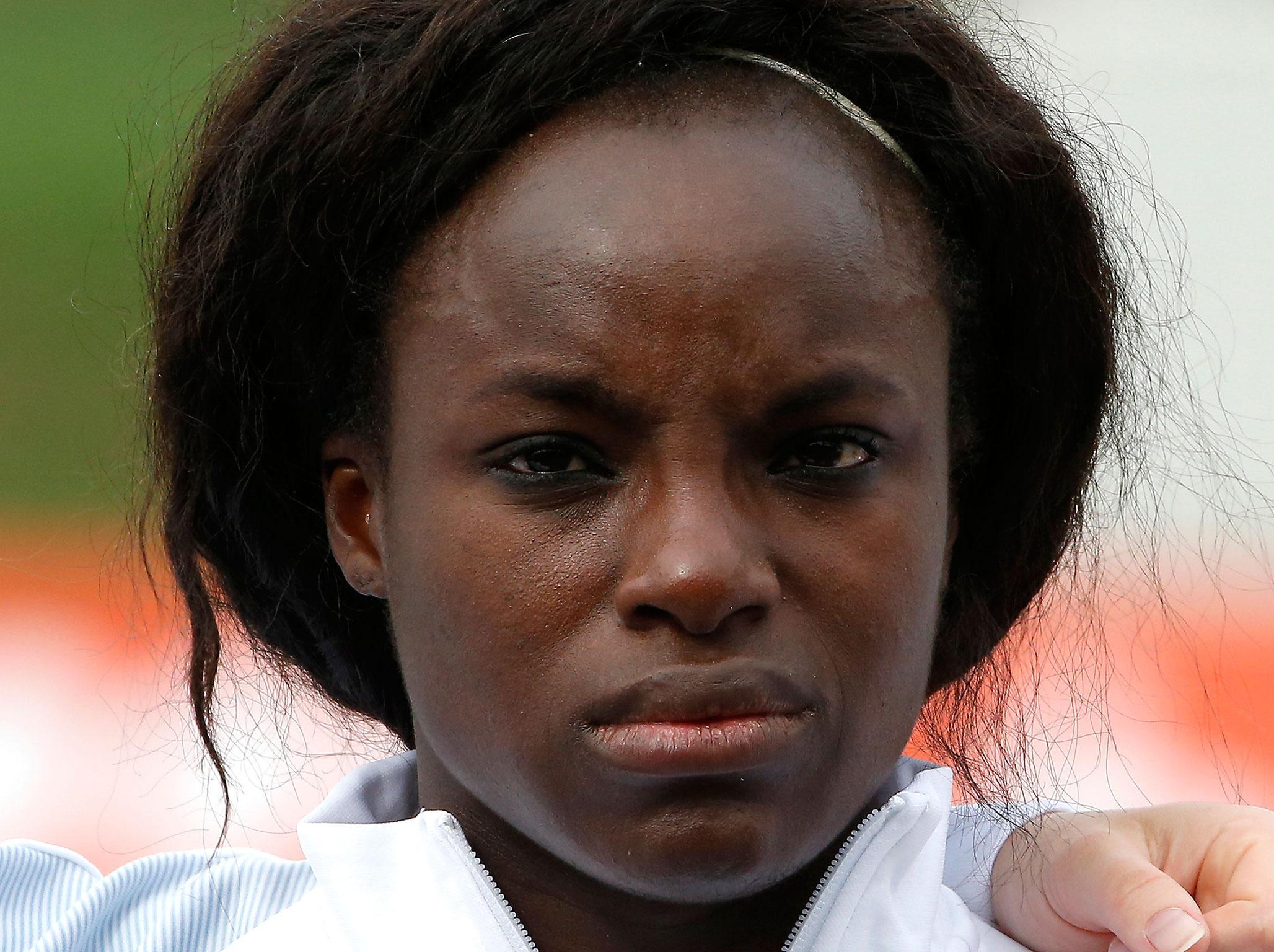Eni Aluko feels ‘vindicated’ by FA apology but accuses chief executive Martin Glenn of blackmail
When Glenn later faced the DCMS committee on Wednesday, alongside FA chairman Greg Clarke, technical director Dan Ashworth and HR director Rachel Brace, he refuted Aluko's claim

Your support helps us to tell the story
From reproductive rights to climate change to Big Tech, The Independent is on the ground when the story is developing. Whether it's investigating the financials of Elon Musk's pro-Trump PAC or producing our latest documentary, 'The A Word', which shines a light on the American women fighting for reproductive rights, we know how important it is to parse out the facts from the messaging.
At such a critical moment in US history, we need reporters on the ground. Your donation allows us to keep sending journalists to speak to both sides of the story.
The Independent is trusted by Americans across the entire political spectrum. And unlike many other quality news outlets, we choose not to lock Americans out of our reporting and analysis with paywalls. We believe quality journalism should be available to everyone, paid for by those who can afford it.
Your support makes all the difference.Football Association chief executive Martin Glenn has denied trying to "blackmail" Eni Aluko into making a statement that the governing body is not institutionally racist.
Aluko's claim came during an incendiary appearance before the Digital, Culture, Media and Sport (DCMS) committee over the FA's handling of the Mark Sampson affair.
The 30-year-old striker told the panel she has not received a "second tranche" of the £80,000 settlement she agreed with the FA earlier this year to avoid going to an employment tribunal following her allegations against the former England Women's team manager.
Aluko said she was told by Glenn that she would get the rest of her money, which was to compensate her for loss of future earnings, if she "wrote a statement" clearing the FA of racism.
She said she "categorically refused to write it", considering it to be an "appalling" request that "bordered on blackmail", and added she has never suggested the FA is institutionally racist.
An hour later, when Glenn faced the 11 MPs alongside FA chairman Greg Clarke, technical director Dan Ashworth and HR director Rachel Brace, the chief executive refuted Aluko's claim.
He said the FA had stopped the second payment, due after this summer's European Championship, because of a tweet Aluko sent on August 30.
That Twitter message said: "At least we now know the FA's stance on derogatory racial remarks by an England manager. Ignore, deny, endorse. In that order."
Glenn said the FA took legal advice and decided it breached their agreement "not to defame each other".
But he claimed there was no demand for a statement exonerating the FA of institutional racism, simply a request for Aluko to retract the tweet and make a clarifying statement, which he thought she had agreed to do but has not.
Asked if Aluko will be paid the rest of the money now, Glenn said: "We will reflect on it."
It was an answer he repeated when pressed by the incredulous panel.

That exchange was indicative of a four-hour hearing that left a calm and collected Aluko "vindicated" and the FA's senior quartet of bosses badly damaged.
The session opened with the publication of barrister Katharine Newton's reopened investigation into Aluko's claims of bullying and discrimination against Sampson.
And unlike the deeply flawed internal FA review conducted by Ashworth and Brace, and Newton's first compromised inquiry, this third attempt at uncovering the truth found that Sampson had made racist remarks to Aluko in 2014 and team-mate Drew Spence in 2015.
Newton did not change her view that Sampson had not bullied or discriminated against Aluko, although she did say he should be given training to better understand "the appropriate boundaries when engaging in banter" with players. She also said she did not consider Sampson, who has strenuously denied all the claims, to be a racist person.
Explaining the background to her complaints, Aluko painted a picture of a management team that had made up its mind about her place in the team very early, despite her continuing good form and undisputed pedigree.

The Chelsea star, with 102 caps for England, told the panel she was picked out for profane criticism on a match video, spoken to in a "Caribbean accent" by a goalkeeping coach and repeatedly undermined.
Her relationship with Sampson completely broke down after she criticised him in what she believed was a confidential "cultural review" instigated by Ashworth, who later denied breaking that confidence by telling Sampson of Aluko's comments.
What followed, however, was her deselection, the FA opening an investigation into agency work, the two flawed reviews of her Sampson complaint and dispute over her settlement.
She also claimed the FA's strategy director Robert Sullivan leaked material to the media to tarnish her reputation and revealed how the team's sports psychologists had used a black actress, who many in the team thought was meant to represent Aluko, to demonstrate "bad behaviour and a self attitude".
If those claims were bad, Glenn and Clarke, in particular, conspired to make things even worse for themselves when they started their testimony.

Both men repeatedly failed to give the full apologies the MPs wanted to hear, with Glenn sticking to a mantra that "the spirit" of their actions had been correct and they had got the right answer in the end.
At one point, Clarke tried to deflect the verbal blows he was receiving by launching an astonishing attack on the Professional Footballers' Association, which has backed Aluko throughout, and its chief executive Gordon Taylor, by suggesting it has let down survivors of football's child sex abuse scandal.
This got short shrift from the MPs, who lost all patience with Clarke when he tried to suggest claims the FA is institutionally racist are "fluff". The chairman had to quickly retract that but the damage was done.
But perhaps the most bruising exchange was when Glenn claimed an interview he gave to The Guardian last month, in which he said he picked Newton to do the review because she is black, was an "embellishment" because he was tired after a long day.
And this is before the panel even got to the issues surrounding the matter that did eventually get Sampson sacked last month - inappropriate behaviour with young players at his former club Bristol Academy.
Here, Clarke gave an apology without caveats - the FA did not do sufficient due diligence on the 35-year-old Welshman and he should never have got the job in the first place.
PA
Join our commenting forum
Join thought-provoking conversations, follow other Independent readers and see their replies
Comments